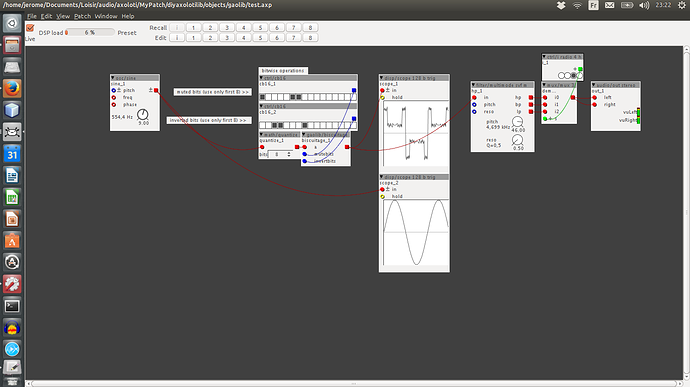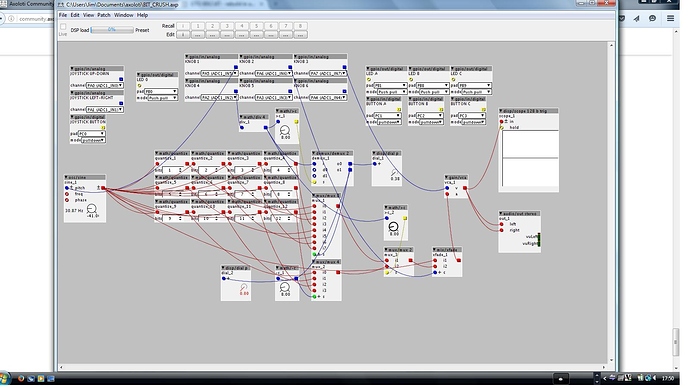Yes, and perhaps samplehold object with an osc/phasor in input for sample rate reduction.
For muted and inverted bits, I wrote an object last night.
I have a complete patch with bit depth reduction, sample rate reduction, muted bits and inverted bits, and 3 filters.
But my patch does not sound like the video...Blame my bitwises manipulations or filters ?
I post my patch tonight if I have time.


 !!! ??
!!! ??
